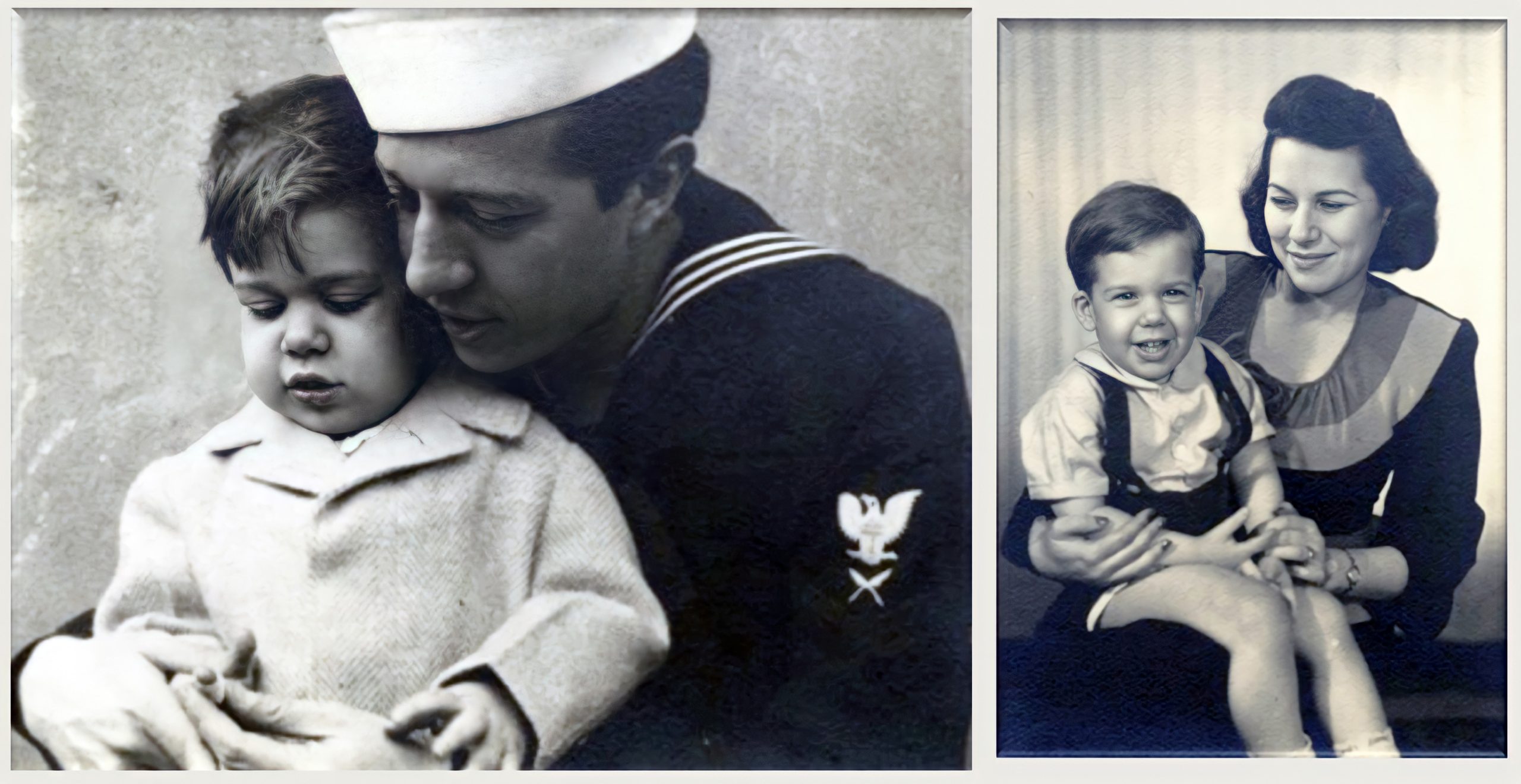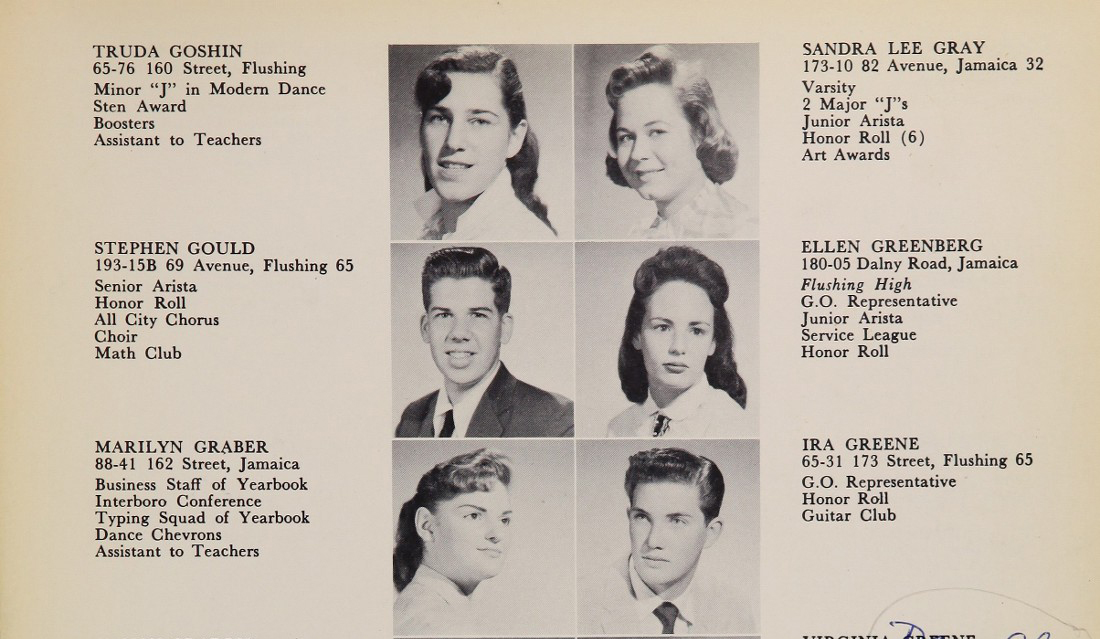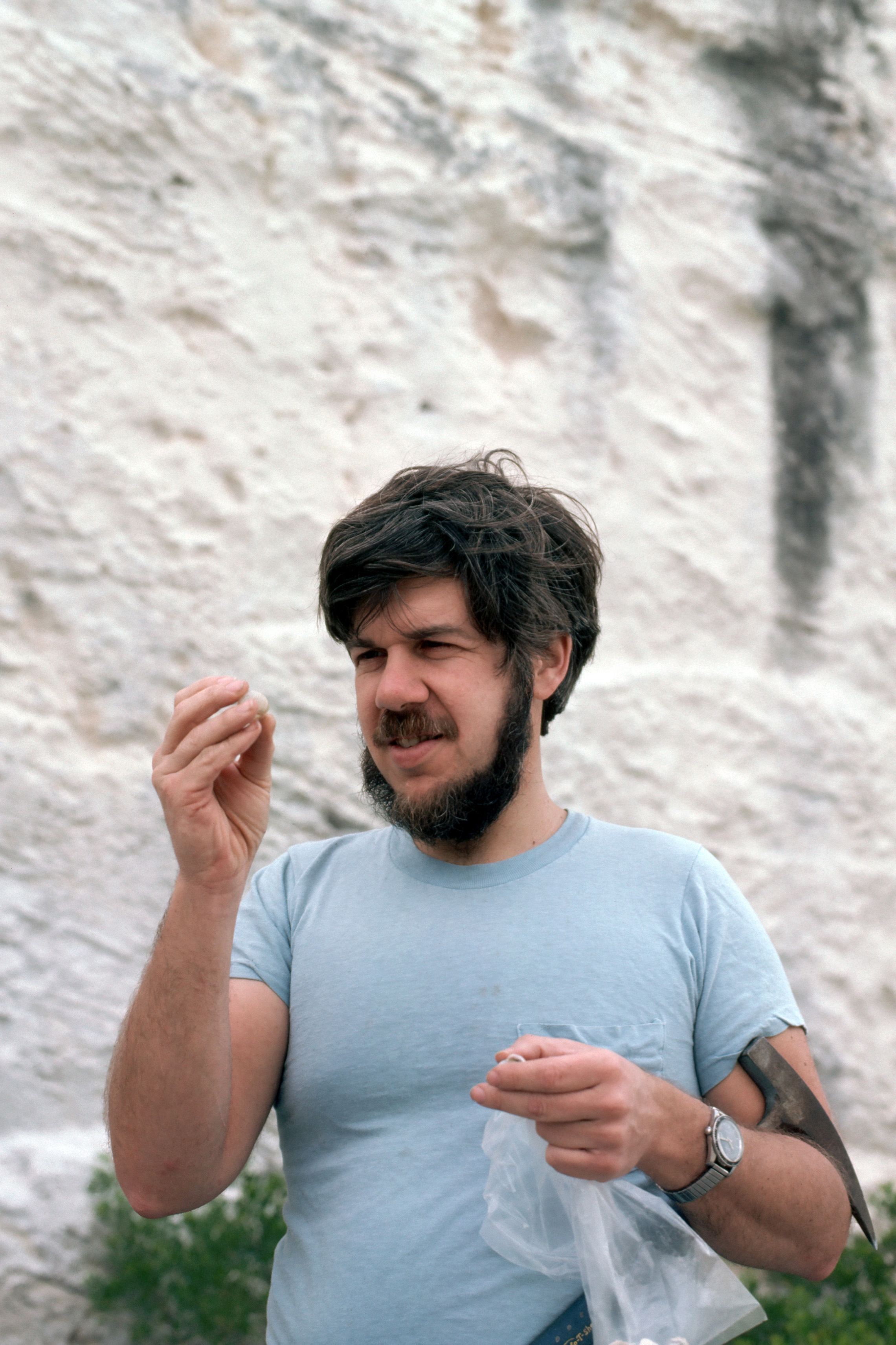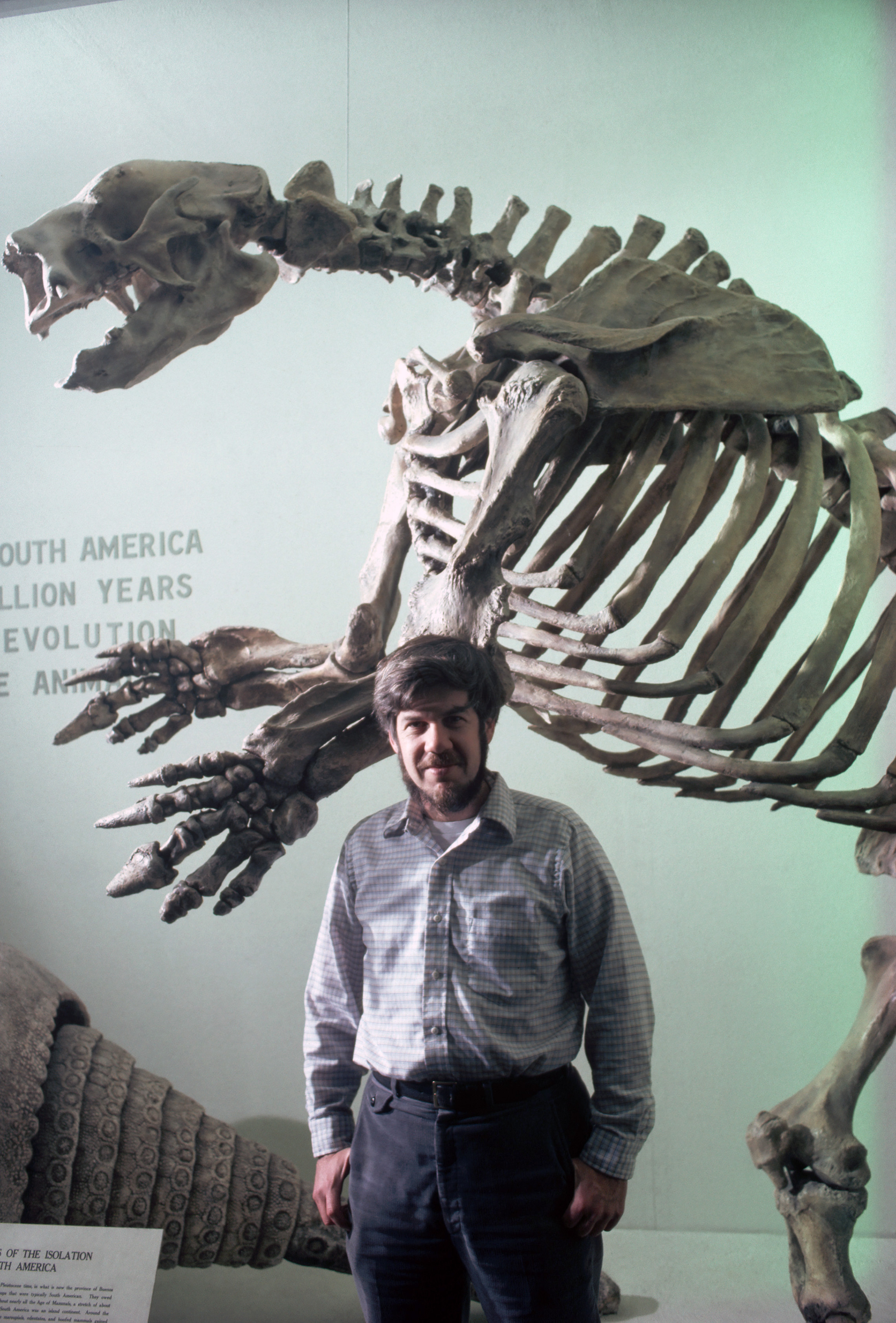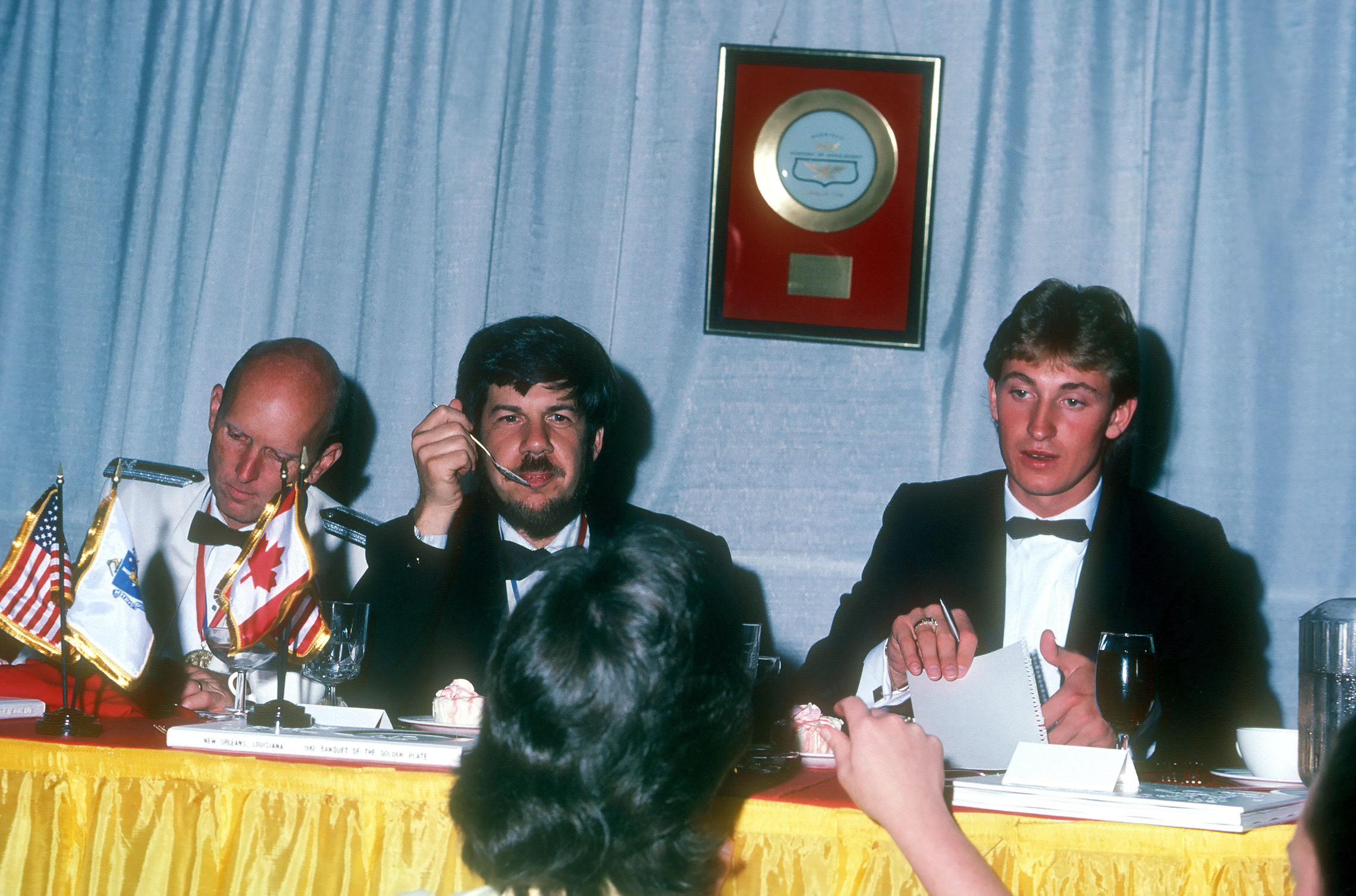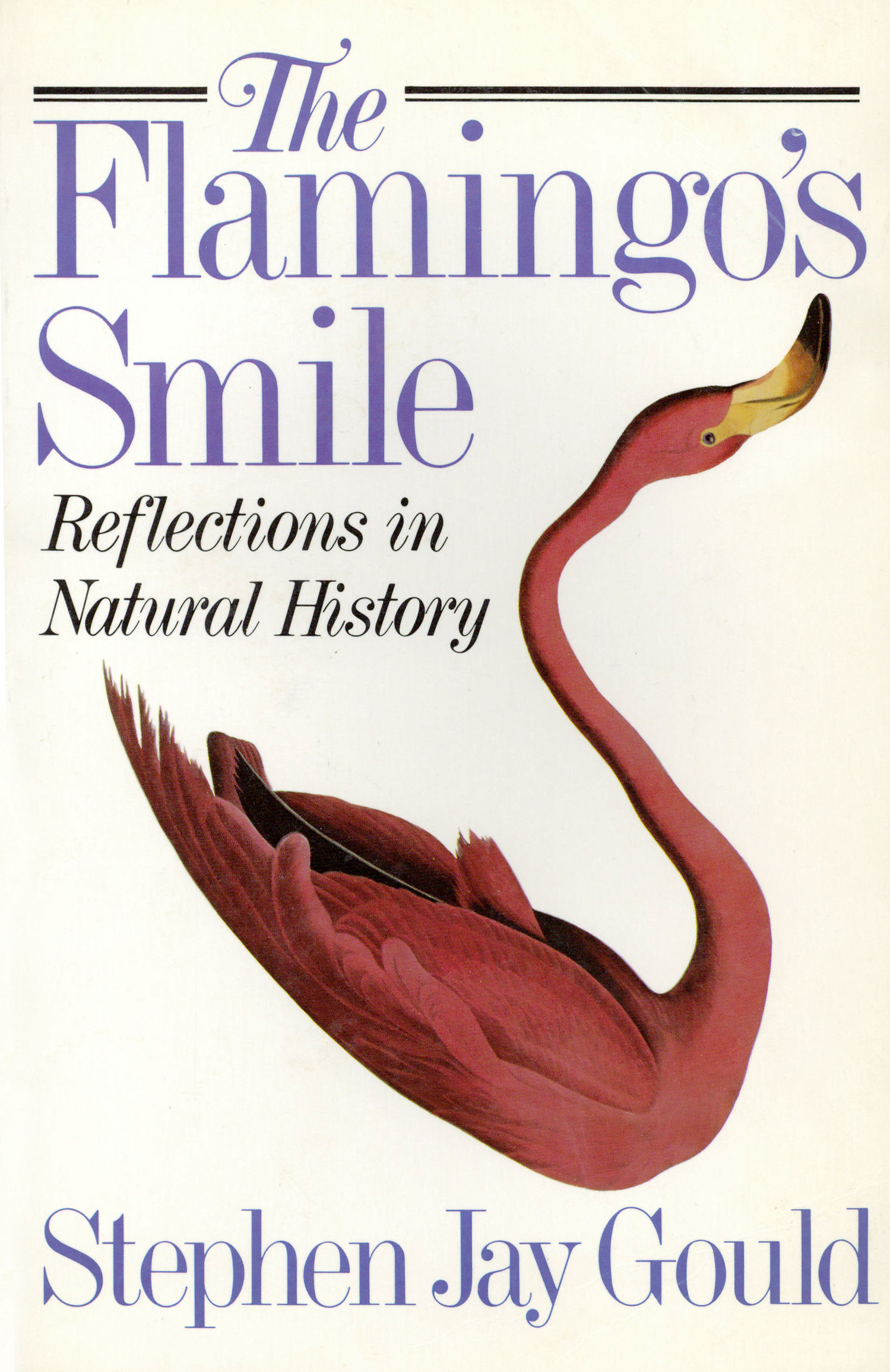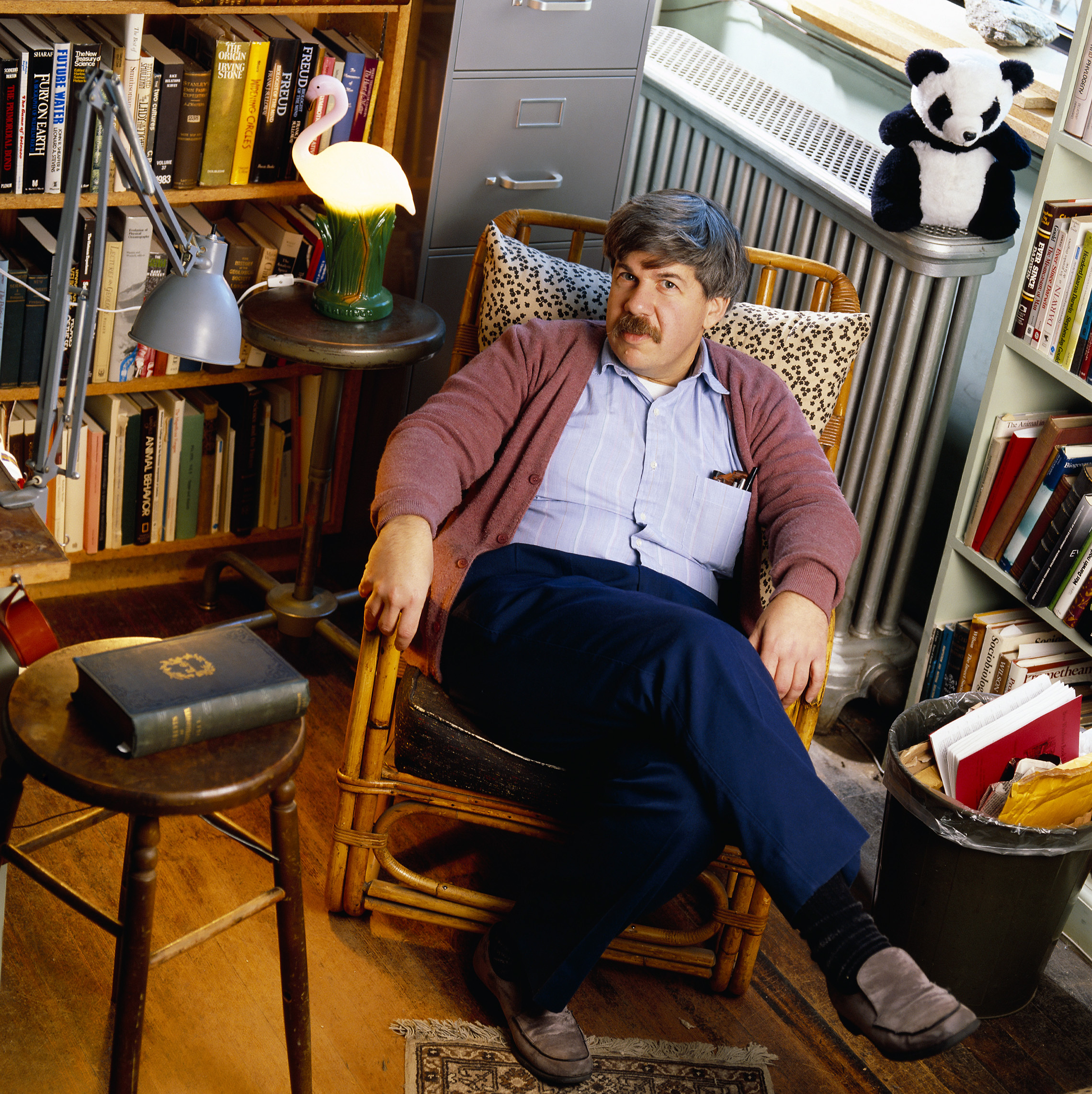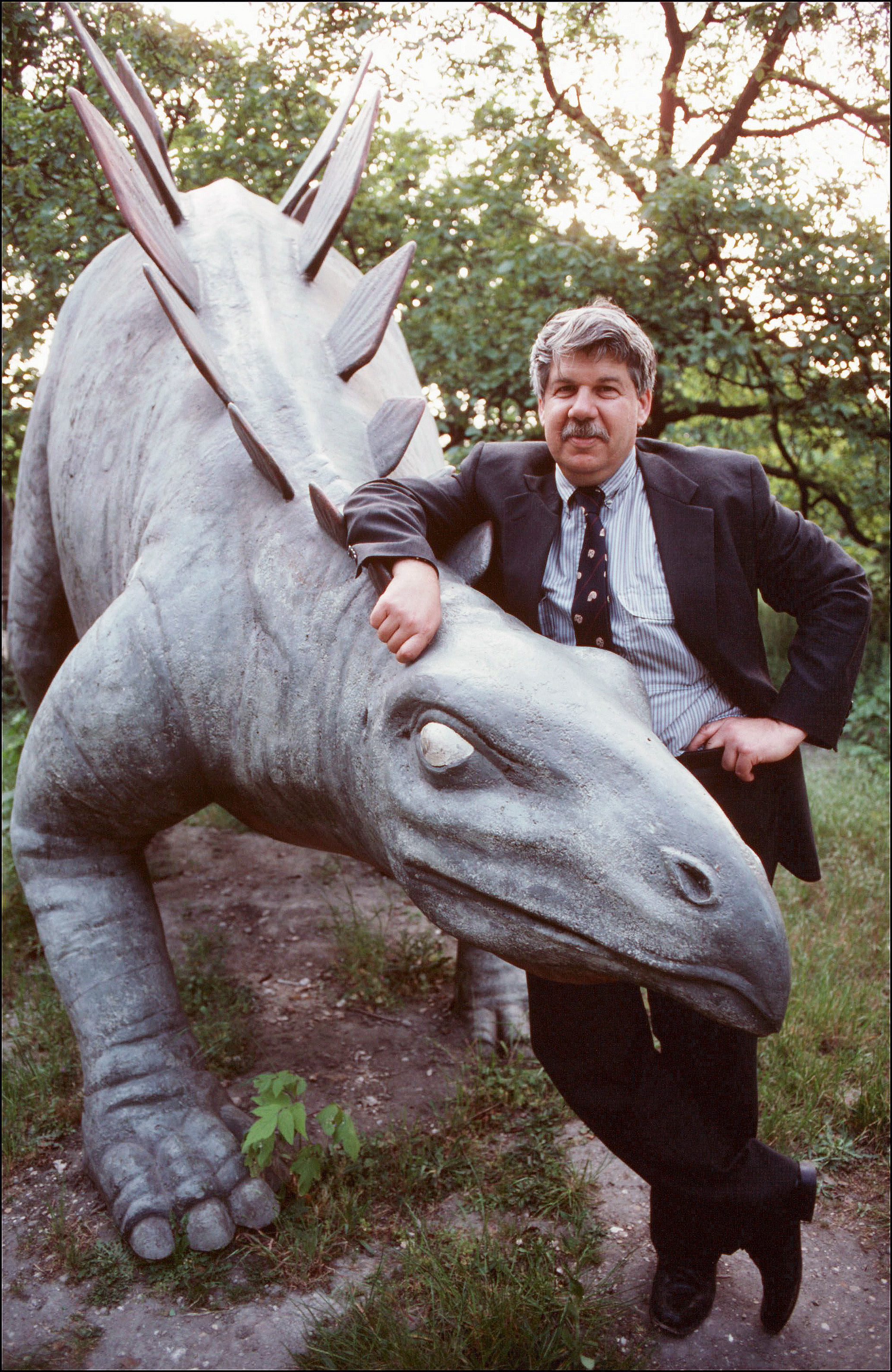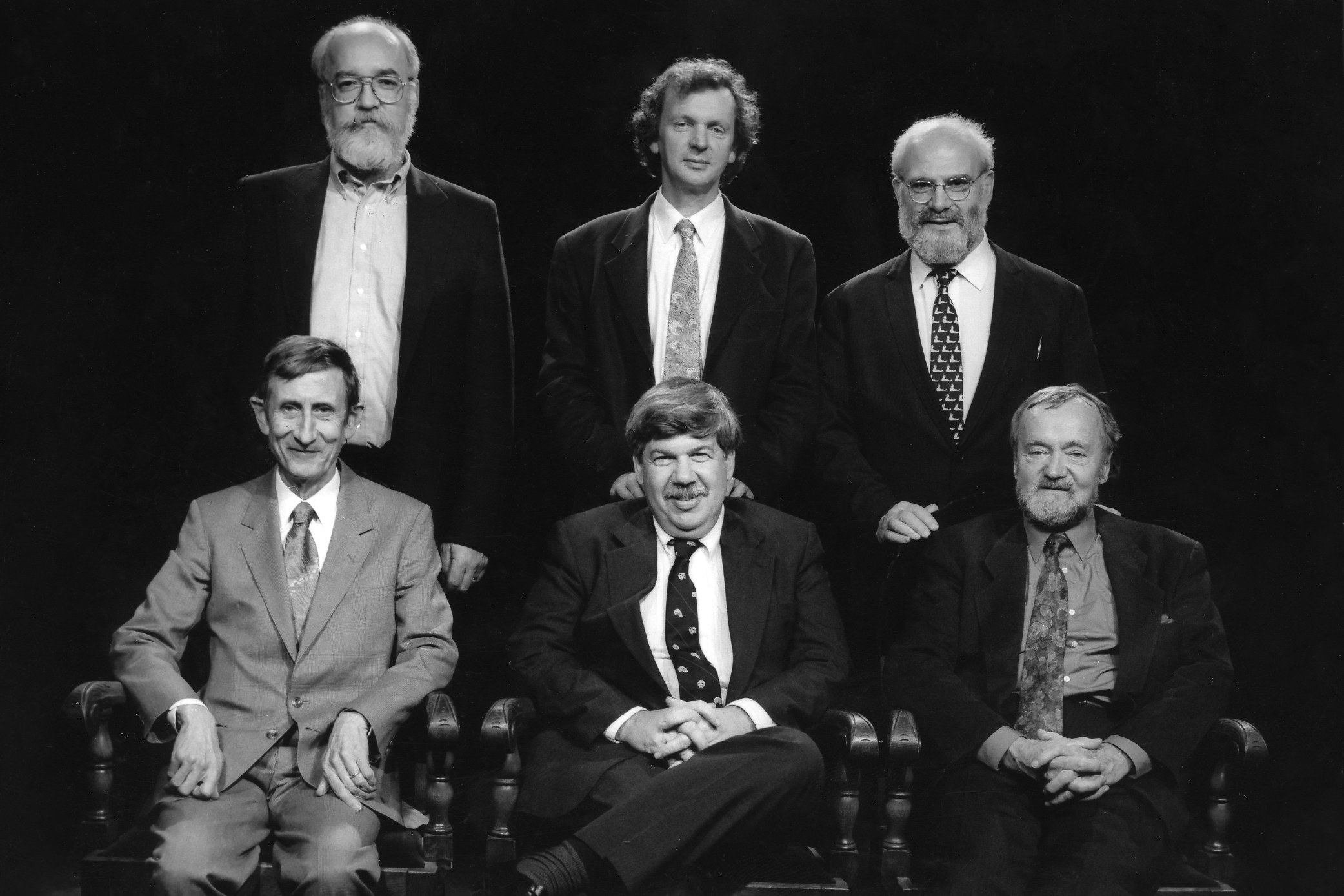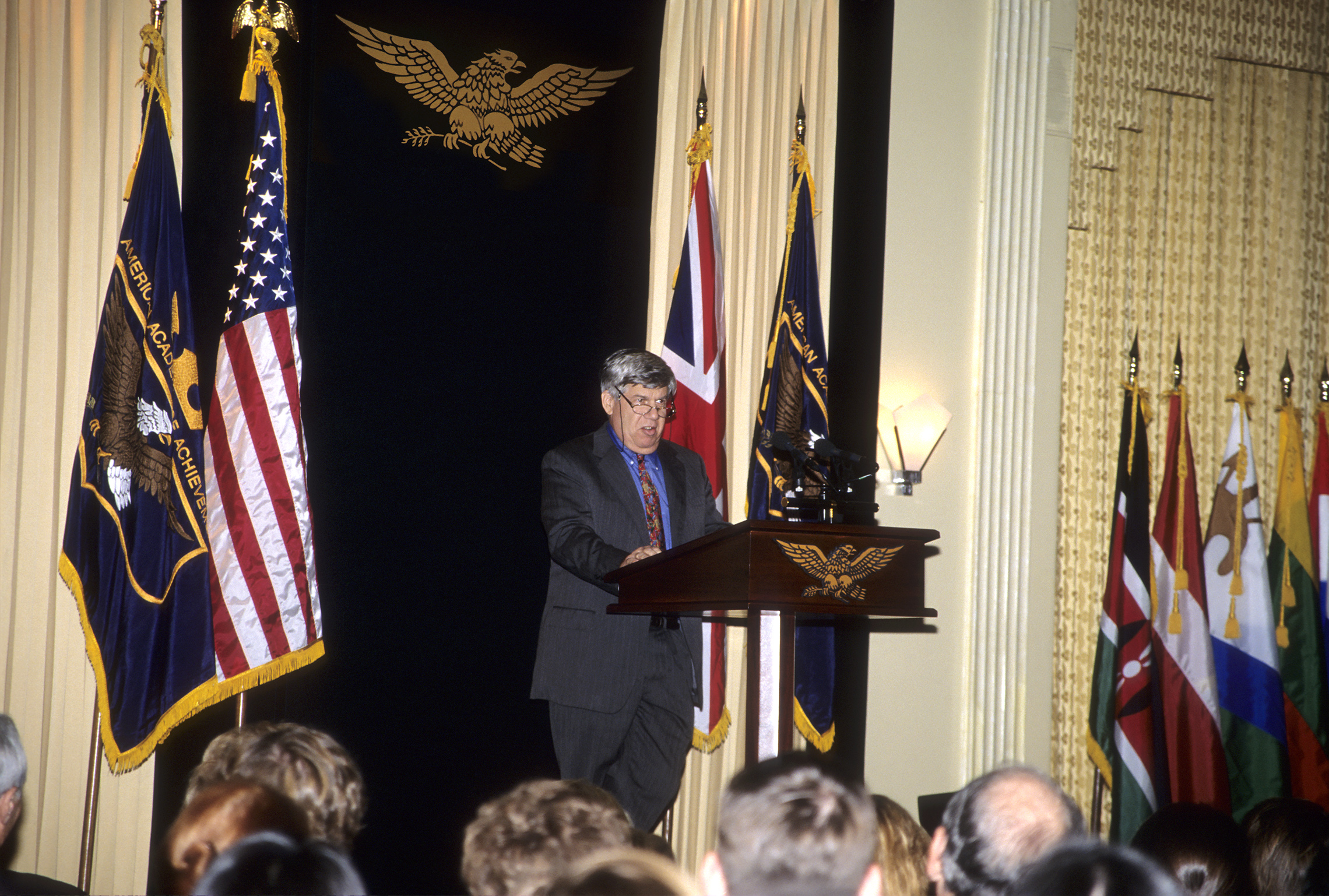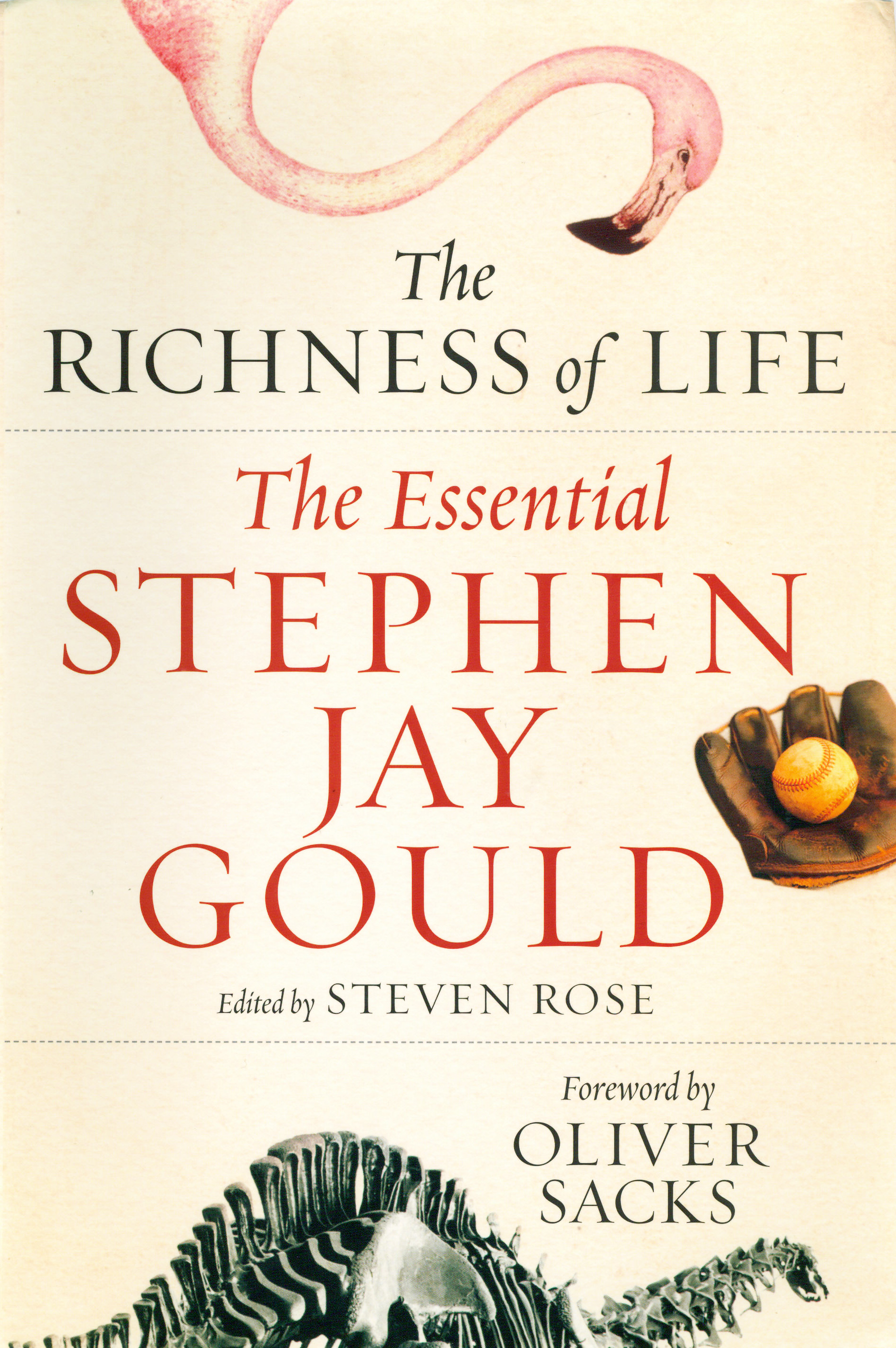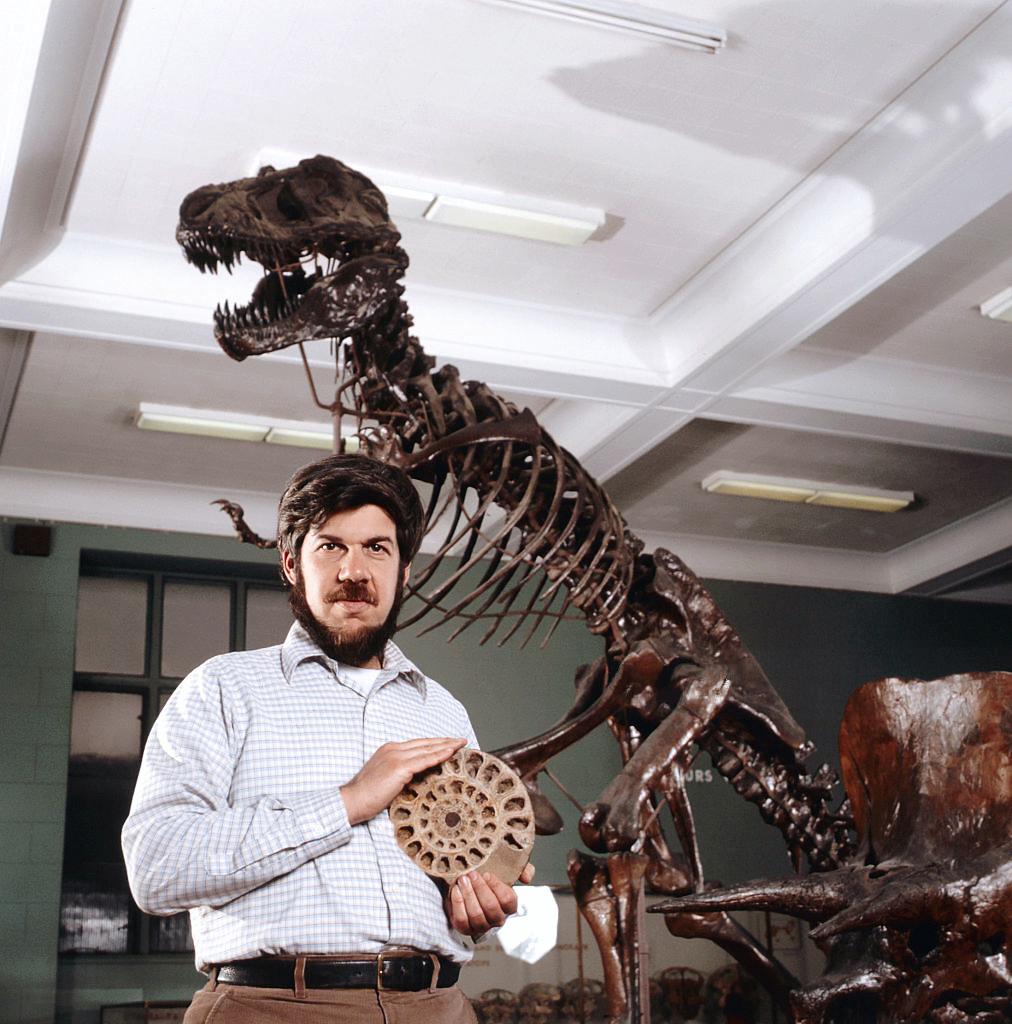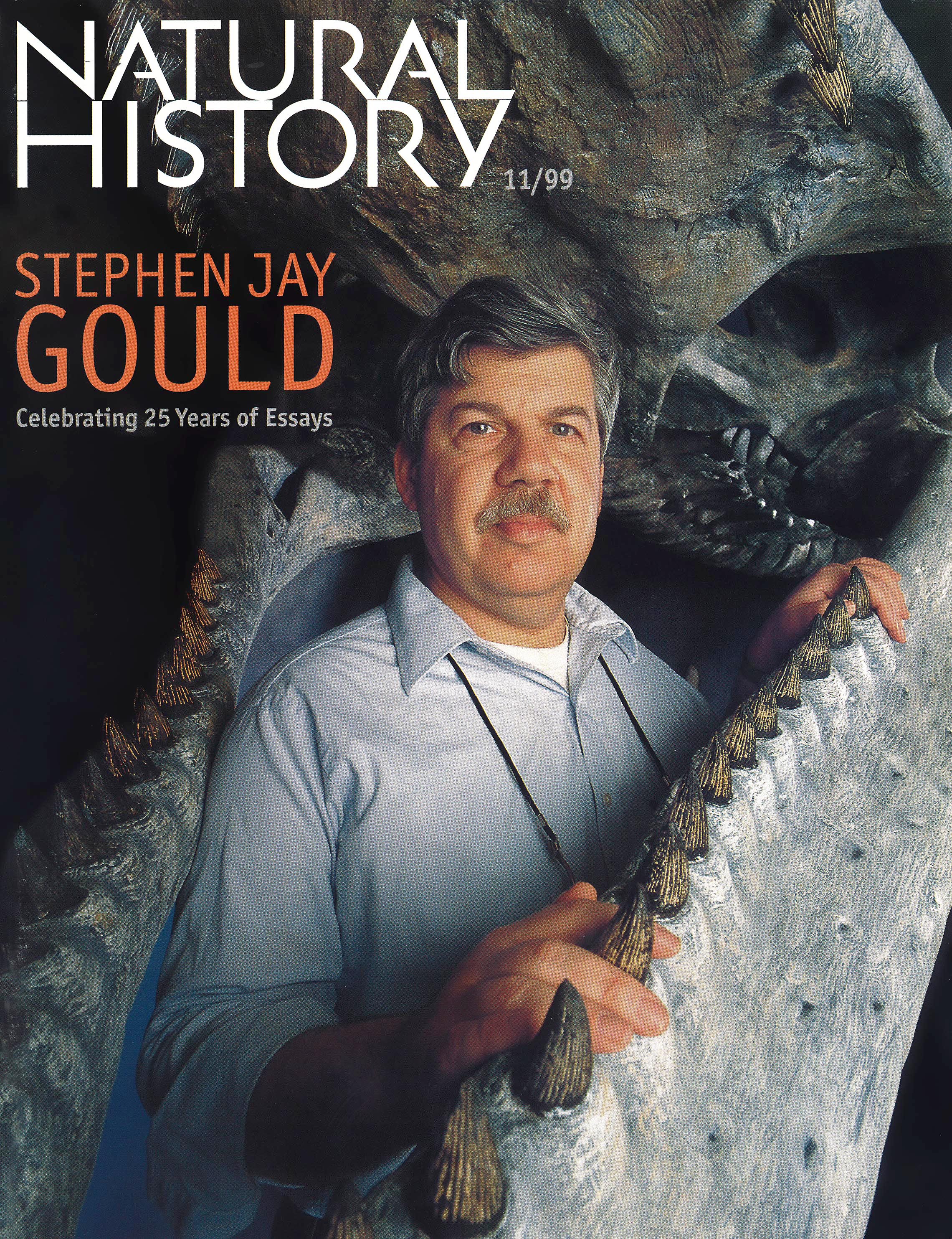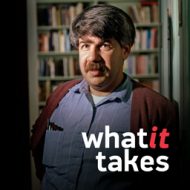As a child, did you dream about what you might achieve someday?
Stephen Jay Gould: I had such an imperfect notion of what paleontology was. I didn’t come from an academic or intellectual family. I didn’t have role models in that sense. So I didn’t even know the word paleontologist for a while. Every kid knows it today, but there wasn’t that kind of media-inspired dinosaur fascination in the late ’40s. I knew I wanted to spend my life studying them somehow. But I didn’t know that there were professors in universities, and that you could write books and papers and give talks and teach. I guess all I thought about was collecting dinosaurs in deserts, and working in museums stringing bones together.
You say you didn’t have academic role models, but as a child, what person inspired you or motivated you?
Stephen Jay Gould: Just people in my immediate family. We didn’t come from that kind of background where I actually knew leaders or even any professionals in those fields. I had a number of relatives who encouraged my interest in a variety of ways, particularly my father and mother and all my immediate family. My Uncle Morty is still alive in Rochester at age 92, and was head violist at the Rochester Symphony. He was sort of the family intellectual. But then of course, I read. People sort of assume that anyone who is reasonably successful later must have been a bookish intellectual as a kid, and that really wasn’t true with me. I spent most of my afternoons, as I remember it, playing stickball or poker, depending on the weather. But I did a certain amount of reading, and reading works of E.H. Colbert, who was the curator of dinosaurs at the museum and later was my teacher. Inspiring? I don’t know, at least they were the books on dinosaurs that were available. Then when I got a little older, I read George Gaylord Simpson, who was the best writer and leading paleontologist of that generation.
I don’t know that there’s any one person I could particularly specify. My father would be the most important.
What was your parents’ reaction to your wanting to be a paleontologist?
Stephen Jay Gould: It was supportive. Nobody knew what it was really. My father took me to museums, and he knew the dinosaurs there were interesting, but I guess it was more a puzzle then anything else.
It is after all a fairly standard sequence in American history, isn’t it? My grandparents were Eastern European immigrants who went through Ellis Island like everybody else, and you have this three-generational sequence. My grandparents were in the clothing business, in the sweatshops in New York, and then the next generation, my parents, sort of scratch their way into the middle classes, but don’t become professionals or get a college education. And then the next generation — me — goes on to professional life.
As you grew older and began to make a mark in your field, what was your parents’ reaction?
Stephen Jay Gould: They were always very supportive. Puzzle is the wrong word. Paleontology seemed an oddity. It wasn’t the usual path of that third generation that makes it into the professions. Law and medicine is probably more common, but they were totally supportive. I somehow always knew I was going to go to college and be a professional of some sort. I had no idea what college was. It was kind of scary. I thought you had to study all day, which in fact you do. But my grandparents, who were sort of old country, Hungarian and Yiddish speakers — it was, if anything, more of a puzzle, but it sounded wonderful — they were, again, supportive. I remember my grandfather telling me I really ought to go to MIT, because that’s the one place he knew about that was a technical education. Nothing to do with paleontology, but they thought it was fine. They were very happy to see a grandchild who was obviously intellectually fascinated, and who was going to have the opportunities that they had never had.
What was grade school like for you?
Stephen Jay Gould: I went to a standard public school in New York City, P.S. 26 — they have numbers there — in Queens. But you know, the New York City public school system — for whatever trouble it’s in now, and there are still pockets of great excellence in it — was really a wonderful system in the ’40s and ’50s. It was still working, it was that odd combination of — somewhat overly stereotypical, and I don’t really mean it this way — but it was sort of tough, old-fashioned Irish teachers and enormously warm-hearted Jewish teachers, and many others. Many of whom had gotten their jobs in the ’30s, right in the heart of the Depression when there was no work available, and absolutely the best people could be hired for these jobs. Many of them stayed with it. A lot of them were tough and cynical, but when there was a good student, they could be inspired. I was lucky, I had very good teachers. I dedicated one of my books, The Panda’s Thumb, to my third, fifth and sixth grade teachers. Now you notice my fourth grade teacher was not included. You don’t have good ones every year! It wasn’t especially enriched education in any modern sense of what you might get in an elite private school, but yeah, I got a good, solid education. I learned grammar, which I’m not sure they teach anymore. I got a good, solid foundation in all sorts of things, and there was no discouragement and I’ve got no complaints.
How did these teachers inspire you? Was it something they said? Was it something they gave you to read?
Stephen Jay Gould: I don’t know if they inspired me. They basically didn’t suppress intellectual interests, which to me is the most important thing. The closest to inspiration was my beloved fifth grade teacher, Mrs. Ponti, who I’m delighted lived long enough to get that book’s dedication. I exchanged Christmas cards with her for the rest of her life. She was a wonderful woman. I think the main way she inspired was by respecting students’ interests. She herself knew very little science. Science was not formally taught at all, as far as I can remember, at grade school level. She realized there were a group of us who were interested in science, so she would let us sit by ourselves in the back of the classroom once a week for a couple hours, and she got books for us and discussed science. So I suppose she was a very good model for good students.
How did you get along with your classmates? What kind of kid were you? Were you the kid who was always reading?
Stephen Jay Gould: No, I wasn’t. I mostly played punchball in the schoolyard during recess. It was a very diverse school. There were the tough kids that I didn’t get along with, but there was a reasonable — intellectual is perhaps not the right word for fourth and sixth graders — let’s say a group of kids who were serious enough about school, or who certainly knew how to have fun, and that was my crowd. I wasn’t an outsider, I wasn’t a central insider either.
Did you ever want to be a fireman or a policeman or a ballplayer?
Stephen Jay Gould: Oh sure. But I knew I didn’t have the body to be a ballplayer, and anyways, since Joe DiMaggio retired, Mickey Mantle took over, and that was the end of my dreams of playing center field in New York.
What was your favorite subject in school? Do you remember that?
Stephen Jay Gould: We’re still talking about grade school? History. A great subject, still the best subject that’s taught.
What interested you about history?
Stephen Jay Gould: Pageant, change, influence on today, determination of modern patterns through historical change. The recognition that if things had gone just a little bit differently, your life would be massively different from the way it actually is.
Did paleontology lead you to history or the other way around?
Stephen Jay Gould: No, I think I saw it was separate. I’m not sure I saw it related at all at that time.
Looking back on grade school, is there anything that you wished you had done differently?
Stephen Jay Gould: I don’t think so. I was in the New York City public school system right through high school. I went to junior high school and to Jamaica High School. It was a solid but not overly inspiring education. I have no complaints. I got a good background, but for someone like myself who had a real fascination for something quite specific, it wasn’t going to be school that nurtured it anyway. It was going to be an outside, private fascination.
Probably the most important thing I did, if I were to cite one incident — and this has nothing to do with paleontology in a direct sense, but in another way it has everything to do with career — was singing in the All-City High School Chorus. I was always interested in choral singing, in fact I still sing. It was a total fluke. In fact, the chorus teacher made a mistake. There was this chorus which was composed of the best singers from all the high schools, and each public high school was allocated a few audition try-out passes, so to speak. My chorus director had two. I was in the junior chorus, the senior chorus had more. And he called my name by mistake — there was one obvious person who got one of the tickets — and I was very pleased. I went up to get the ticket and he suddenly realized he’d made a mistake, but being a sensitive man — I’ve always been grateful for this — he didn’t embarrass me by saying, “I’m sorry. I didn’t mean you.” He just let it happen, he gave me the ticket. I went down, I tried out, I actually got in. I was by no means in the top half of this chorus, but the chorus was then led by a man named Peter Wilhousky, who was director of music for the City of New York, one of the great choral conductors of America. He was an old Polish or Russian aristocrat, and he just had a fierce belief in excellence. He was also tough as could be, and he’d throw people out at a moment’s notice. He’s not a nice man, I don’t mean that. Niceness is not always what you want. I mean, you need a lot of it, but before I met Wilhousky I had just never even encountered the notion that genuine professional excellence was attainable by high school students. And yet he would settle for nothing else. We were the best singers in the high school system in the city, and we were damned well going to turn out a professional quality concert, which we gave each year in Carnegie Hall. He wasn’t even going to consider anything else, he just didn’t even talk about it. You were going to do that, and I’m going to do it all, that’s all there was to it. And that was a very inspirational message. I don’t know that my life would have been different. I think I had enough internal drive to do what I wanted to do, but to see that institutionalization of genuine excellence at age 15, 16, was very important to me. Now I got into that chorus by sheer good fortune, as I’ve told you the story. That’s how lives work anyway.
Can you remember books that influenced you when you were growing up? What books had an impact on you?
Stephen Jay Gould: You probably expect, when you interview these intellectuals, they’re going to tell you, “When I was eight, I read War and Peace, and when I was ten I read Kant’s Critique of Pure Reason on the subway, holding the strap on one hand, the book in the other. I think probably the book that first inspired me was The Little Engine That Could, something like that. And then after that, it was probably Joe DiMaggio’s Lucky to be a Yankee, which is one of those cardboard sports books, but inspirational in its own way. I was really not a great reader. I’m not against reading by any means. Had there been, when I was a kid, the literature that now exists, for example, on paleontology, dinosaurs, I would have a lot more to tell you. But there was very little then. Roy Chapman Anders had a book called All About Dinosaurs, but you could scarcely call it inspirational. It was informative. Colbert had a couple dinosaur books. When I got a little older, George Simpson’s Meaning of Evolution inspired me, but I was probably 14 or 15 by the time I read it. I always enjoyed the reading we got in school. I liked the Norse myths more then the Greek myths. I liked the Odyssey, but I didn’t have a policy of sitting alone in my room and reading great novels. I even liked Tale of Two Cities and Julius Caesar and Return of the Native and Silas Marner and all these things we had to read in school that most kids hated. I always essentially liked everything, I just loved being in school.
It was traditional when you’re eight or nine years old to claim that you hated school, but when everybody shouted, “No more teachers, no more books,” I probably sang along with them, but in fact I always liked going to school and liked what I read. It’s only later, I think, in college, when I started doing more serious reading. I remember loving James Joyce’s Ulysses when I first read it, though in retrospect, at age 19 or 20 when I read it, I scarcely understood it. I simply wasn’t able to sympathize with the way the life of a 40-year-old man works during the day. I just wasn’t in tune with it, didn’t understand a lot of it. I loved the Dostoyevsky novels. And then of course there’s Darwin, but I didn’t read Darwin in the original until well into college. In a sense I knew its major content before I read him, so I couldn’t say it was inspirational in that sense. It was good to read.
What was the first book on paleontology that you read?
Stephen Jay Gould: There must have been that Roy Chapman Andrews’s All About Dinosaurs but it was just a pot boiler kiddie book. It was informative, it whetted my interest, it kept me going, but the skeletons in the museum were much more important then any book I ever got my hands on, because there wasn’t much in the way of books. It would be different now. Now there’s an enormous literature, and some of it’s very good, on dinosaurs. There wasn’t then. There was Alley Oop riding a Brontosaurus and there was King Kong and that was about it.
Victor Mature in One Million B.C.?
Stephen Jay Gould: Hey, that’s right! That was an okay film.
We have to ask, why is Joe DiMaggio such a personal hero of yours? What is it about DiMaggio?
Stephen Jay Gould: Oh, that’s actually pretty easy to answer, and I think it does embody an important lesson for intellectuals. Joe DiMaggio — and you see, I was only six or seven when I first saw him play, I could not articulate any of these general principles. But if you understood the game of baseball, and I think I did, even when I was six or seven, you just had to see that DiMaggio was special, that he shone in a certain way. As did Ted Williams and a few others. He shone as a result of his commitment to excellence, I don’t know what else to say. He had natural gifts to be sure, as great intellectuals have natural mental gifts. But to watch DiMaggio, to watch his own obsessiveness, to watch the grace of his movements, to watch his commitment, this lack of laziness, this vigilance, this need to get everything just as good as he possibly could. The fact that he retired when he still had several years to play at high salaries, because he saw his skills eroding, and he couldn’t bear to hang on beyond, even though economically that might have made sense. He was — is — a remarkable, prideful man, committed to excellence. Now here’s the point. Too many intellectuals think that sports figures who are successful do it by brawn, whereas intellectuals do it by brain, and it’s just lucky natural gifts. But that’s nonsense. You have to have natural gifts, and you have to have it to do intellectual work also. But there’s so much more to it. There is everything about temperament that leads to commitment to excellence. So what I learned from DiMaggio, I couldn’t have put in words when I was eight, but I could see it visually, was that this commitment is not only a path to success, but is a valid way of constituting a life. I think that can be gotten as well from a sports figure as from a mental intellectual.
We understand you met DiMaggio a few years ago. If you could have a conversation with someone else, someone famous outside your field, who would you like to talk to?
Stephen Jay Gould: Let’s see, can you give me all of history?
Yeah, we’ll give you all of history.
Stephen Jay Gould: It would have to be somebody from a very different culture, like Aristotle, ’cause it would be so fascinating to know what it’s like to be a tutor to Alexander the Great. Or Michelangelo, to see what cricks he got in his neck while he was painting the Sistine Chapel. It would have to be great to meet achievers who lived in totally different cultures, to try and get some sense of their motivations, to see if there really is commonality in commitment across the centuries. I would expect there is, but it’d be nice to know. In our own time, a lot of the people I greatly respect, I’ve been fortunate enough to meet, and I haven’t been disappointed.
Regardless of the field, whether it’s DiMaggio playing center field, or a Stephen Jay Gould expanding our understanding of evolutionary science, what personal characteristics do you think are most important to success, to achievement?
Stephen Jay Gould: First you have to be fortunate to have whatever mental aptitudes are necessary for your choice. As I said, I have two other great loves besides paleontology, choral music and baseball, and a lot of others. But I would never have made it in either of those fields. I don’t have the bodily skills to be a good ballplayer, and as much as I love choral singing, I don’t have the soloistic voice. I could have got better with training, I never would have made it as a professional. I think had I been given a gift of voice, I probably would have tried to become an opera singer, and would have been delighted if it had worked out. So clearly, there has to be the good fortune of whatever you bring into the world by your constitution and upbringing. You don’t have a whole lot of control over that, so I don’t know how much control you have over aspects of temperament, but clearly you have substantial control. If there were no control, you wouldn’t even be here talking about it, because it would be determined clearly, and obviously it isn’t.
Most people who are successful, they have to have the good fortune of the mental or physical gifts. Beyond that, you construct it yourself, out of your temperament and your desire. I think what you need to have is energy, and commitment to excellence. If you’re willing to be caught up in the commercialization of mass culture, you’re never going to make it, and too many people get caught up in it. You have to be independent, individualistic and committed to excellence. I don’t really know what all of that means, and I think if there’s anything common to people of achievement, it’s that the gifts of brain or body are always there. But they’re only a prerequisite, and if you don’t have them, you don’t get there, but the common factor is obsessive personal commitment. It’s what we call drive or energy or desire or enthusiasm.
I don’t know how you manufacture it, but surely it is subject to some motivation, it’s not just born within you. For example, in my own field, these names will be familiar to most people.
The three greatest evolutionists, the men who were my models of the generation before me, were: Theodosius Dobzhansky, who’s a geneticist; Ernst Mayr, a taxonomist who’s still with us, in fact is in this very building, working away at age 86; and George Gaylord Simpson, a paleontologist. And I can’t imagine three more different people. I just can’t envision this. Their styles are different, their personalities are different. Dobzhansky was a wonderfully ebullient, buoyant person. He’d grab you, put his arms around you, say “How are you?” And that’s not at all like me. Simpson was a sort of quiet, almost dyspeptic, cynical kind of man who was very hard to get close to. Ernst Myer’s a classical German intellectual. He’s very rigorous and precise, very kind, very formal. Now I can’t imagine three more different personality types. I’m not sure they got along personally very well with each other. I don’t think they had great battles either, but I’ll tell you, there’s one thing they had in common. The one thing they had absolutely in common, every one of those men worked every day of his life to the very end and the one of the three that’s still with us is still doing it in his mid-80s. None of them knew how to stop, none of them could even conceive of stopping. All of them had absolute, total commitment. They knew that what they were doing was fascinating, they were committed to it. That was their life’s work. Their styles couldn’t have been more different, their personalities couldn’t have more been different, but the one thing they had was this almost larger than life commitment. They knew what they were doing was important and fascinating and it kept them going. The day people like that stop working is the day they die.
And where did you get that commitment, that kind of drive?
Stephen Jay Gould: I don’t know. All I can tell you is it wasn’t turned off. ‘Cause I think it is turnable off in almost anyone.
If a young man or woman came to you and said, “Professor Gould, give me some advice about how I can do something meaningful with my life…”
Stephen Jay Gould: Play them Frank Sinatra’s “I Did It My Way.” That’s a somewhat facetious comment, but what I mean to embody by that is the notion that you do have to really follow your own path and personal interest. Whatever it takes to realize that excellence is not the common stream, that what you see around you, is for the most part, mediocrity and commercialism. There are immediate rewards there, including monetary ones, but that it doesn’t lead to that kind of achievement. How you create the commitment to excellence, I don’t really know. I believe it can be created by good teaching, by inspirational literature, by the examples of people. And I certainly believe that for those who have it, it can be easily turned off. To me, the main value of education is not to inspire in it others, ’cause that’s hard to do, but to keep it alive in the substantial fraction of the population who have it.
Did someone give you a break that paved the way for you? Did somebody see something in you that gave you the opportunity to get this far?
Stephen Jay Gould: I don’t really think so. I don’t mean to be arrogant about it, because a lot of it was luck, but it wasn’t luck that happened to be mediated by any particular mentor. Paleontology is a small field, and it’s not an overly crowded field. It’s not an undercrowded field either. But I think someone who’s passionate and fascinated and interested and reasonably good at it will make their way. It may not be the best job in the world, but will end up in a perfectly satisfactory situation.
There are people who helped me along enormously, and I would mention Norman Newell, my very dear teacher and mentor, who’s still working hard in his mid-80’s, coming in every day and publishing terrific stuff. Norman did help me along enormously. He hired me when I was still an undergraduate to do some research for one summer. I studied with him as a graduate student. But if Norman hadn’t existed, I would have ended up as a graduate student somewhere else. I don’t doubt I would have become a professional paleontologist. I think my internal drive was so great that unless it had been prevented, I don’t know that I actively needed to be pulled along. Now anybody can be turned off. I could have been turned off by cruel or simply not understanding parents. I could have been turned off by immense poverty. I could have been turned off by a lousy school system. I could have been turned off by accident, by health problems, any one of a number of things that can derail. But I don’t know that I needed to be pulled, all I needed was not to be prevented. But that’s not a good model, because there are always obsessives, but obsessives are rare. I was one of those obsessives, every classroom has one or two of them. The reason why we have to improve education in America is that for every obsessive, there are 10 others who need to be pulled, but who are just as smart and just as capable, just as valuable.
Why do you think you were so obsessive?
Stephen Jay Gould: I haven’t the slightest idea, I think it’s a deep, deep question of temperament. Temperament is some odd and inextricable mixture of lucky accidents of birth and inheritance and an encouraging environment. I really don’t know. You have to have high levels of bodily energy and not everybody has it. I’m not physically strong, but I have very great intellectual energy, I always have. I’ve been able to work all day. I don’t have to get up and get a drink of water or watch TV for half an hour. I can literally sit and work all day once I get going, not everybody can do that. It’s not a moral issue. Some people seem to see that as a moral question. It isn’t. It’s a question of body type and temperament and energy levels. I don’t know what makes us what we are.
A lot of people have potential. A lot of people are smart but they don’t take it as far as you have.
Stephen Jay Gould: Yeah, but being smart is only the prerequisite. There are all the luck factors on the one hand, and on the other hand of temperament, commitment, energy level. Many of the smartest people I know are not intellectual achievers, although immensely smart, many of them much smarter then I am, in some abstract sense. They don’t have drive. They don’t have the ambition, the energy, the desire, or they want to do something else, who knows? No, intellectual success is some mixture of a substrate of requisite intelligence, plus the energy and commitment to do it.
How important is luck in a career? How important has luck been to you?
Stephen Jay Gould: It’s awfully hard to say. It’d be nice if we could claim that anyone who’s driven enough will rise, but that’s not true. Luck has to play an enormous role in anyone’s career. How many billion sperm are there per ejaculation? I mean, luck starts with the fact that it was your sperm, rather then the one a millimeter over, that happened to fertilize the egg that gave rise to you. So just an enormous improbability at every stage of it. That you’re living in the 20th century and didn’t die of some childhood disease that would have got you 200 years ago. That you were born in America and not Ethiopia and therefore had educational opportunities that would be much rarer in other places. That your parents were encouraging. What about the simple issue that you chose a profession you were good at? I have passion, I had drive. Now, when I was five years old I decided on paleontology. Fortunately I have an aptitude for it. Suppose I developed just as strong a passion for a professional career in baseball or singing, which are my other two avocations. I never would have made it. I don’t have the voice, I don’t have the body. But suppose I’d had that drive, it just would have been tragic, I never could have done it, but I would have had to come to terms. Tragic’s too strong a word, but I would have had to come to terms with not making it. Luckily I became fascinated in something I was actually able to do reasonably well. At some point, I suppose you have to credit some mental skill and some internal drive. But there’s so much else that’s luck surrounding that, and that’s true for anyone, any place.
The road to achievement’s not always a straight one. What kind of setbacks and frustrations have you encountered?
Stephen Jay Gould: Nothing was given to me. I did not grow up in wealth, and as I said, I didn’t have an intellectual background. Nothing was handed to me, I had to make it all myself. But nobody was stopping me either. I can’t tell you that it was a great struggle and there were enormous things I had to overcome. I was supported by my parents, I went to a school that adequately encouraged me and gave me a good background. I had a good college experience at Antioch College in Yellow Springs, Ohio. Went to graduate school at Columbia. I enjoyed my work, my thesis turned out well. I was lucky enough, and everything was luck, to get a job here at Harvard which has enormous resources. I got tenure. I deserved it, but the position had to be here. There haven’t been enormous obstacles. On the other hand I was handed nothing, everything I have I had to make, but I didn’t have to make it through a movieland struggle.
Did you ever doubt the work you were doing, or your ability to do it?
Stephen Jay Gould: It’s funny. I’m probably as arrogant as the next guy, but I don’t consider myself an overly arrogant person. But for someone who is intensely analytical in his writing, which I think I am, I’m very non introspective about myself. It’s just a trait of personality. I don’t engage in navel gazing. When something is working for me, I just let it happen. So I’ve never engaged in this enormous self-scrutiny that seems to be part of the life of most intellectuals, at least in the stereotype. I did not have a period of enormous sturm und drang in college. I didn’t suffer existential angst that debilitated me for months. I didn’t have to go to China or India to find my guru. I knew what I wanted to do and I did it and it’s exciting and I’m glad. I’m afraid it’s a sort of dull story. I hope that what’s exciting is the content of the work.
No China or India, but you had to go to Ohio.
Stephen Jay Gould: Oh, Southwestern Ohio is a fine part of the country, except for the tornadoes.
Let’s talk about your professional life. How hard have you had to work to get where you are?
Stephen Jay Gould: Actually, I’ve never phrased it that way, because that’s my joy in life. People talk in my profession, university teaching, “My teaching load…” That’s always struck me as such a strange term, ’cause if you like something it’s not a load, it just takes time. So I work all the time. I work every day. I work weekends, I work nights. But some people looking at that from the outside might use that modern term “workaholic,” or might see this as obsessive or destructive. But it’s not work to me, it’s just what I do, that’s my life. I also spend a lot of time with my family, and I sing, and go to ball games, and you can find me in my season seat at Fenway Park as often as — well, I don’t mean I have a one-dimensional life. But I basically do work all the time. I don’t watch television. But it’s not work, it’s not work, it’s my life. It’s what I do. It’s what I like to do.
Thomas Edison was quoted as saying that genius is one percent inspiration and 99 percent perspiration. How does that ratio apply to you?
Stephen Jay Gould: I think it’s very different in what I do. Edison’s work was so much tinkering and trying it out and empirical testing. So much of my work is writing. I don’t know what you call the writing, it’s true that the actual inspiration, say for writing an essay, the outlining of it is probably a 15-minute to half-hour procedure, then you may spend about 20 hours writing it. But the writing isn’t perspiration in the same sense. It’s not inspiration, but it’s something in between.
Any profession has a vast amount of tedium attached to it. There’s no sense not admitting it. If you’re passionate about it, tedium can be — not exactly a joy — but can be perfectly tolerable. The tedium of a pianist is 10 hours of practice a day or whatever, not all of which is inspirational. The tedium of an experimental scientist is calibrating the machines and doing it over and over again. The tedium of a paleontologist is poring over a microscope, or using a dental pick to chip away the sand grains from the fossil, or looking at the statistical figures in the columns of a computer printout. Every profession has massive tedium, that’s certainly true. You cannot be a successful professional (without it). But I think if you’re committed to it, as they say, it goes with the territory. It’s part of the work. It’s a necessary accoutrement to anything that’s exciting.
Let’s go from Edison to Einstein for a second. He was quoted as saying that knowledge is less important then imagination. Is that true for you?
Stephen Jay Gould: I don’t know if that’s a meaningful dichotomy. It’s certainly true that knowledge, in the sense of unambiguous documented facts, do not in any simple fashion build up to theory, which is a common misconception. But then, I don’t really know where theory comes from. Theory often seems to come out of the head, but it’s a head that’s been prepared by years of study of the facts as well. What I’m trying to say is, what we call imagination draws upon so much factual experience that it is not as pristine as it seems. The two are so interrelated that I don’t quite know how to make the separation. But I think what’s behind that famous remark of Einstein’s is the recognition that science is not a simple accumulation of facts, and that the accumulation of facts does not lead to theory. And that the imposition of human imagination is always required, and that’s certainly true and vitally important.
Do you ever get bored with what you’re doing?
Stephen Jay Gould: No. Of course, as I said, every field has its tedium and tedium is boring. You just have to do it.
For example, what’s tedium for you?
Stephen Jay Gould: Tedium is writing a paper and writing it fast ’cause the ideas are flowing out, and then realizing that there are a hundred bibliographical citations that you then have to find, that you have to get the journal title right and the volume number right and the beginning and the end page of each journal entry.
What’s your typical workday like?
Stephen Jay Gould: There isn’t one, because I do too many different things. It depends whether I’m in the middle of a teaching term or not. If it’s a teaching term, most of the day is involved in lecturing and seeing students. If it’s not, then it’s either writing or researching. Since I do three very different things, I think that’s why I’ve been able to keep this passion going for all of these. If I only did one over and over, and the same thing every day, maybe I would have dried up by now. But I do my technical work on the evolution of land snails, I do my technical theoretical work on the structure of evolutionary theory, and then I do this popular writing, the monthly essays for Natural History. It very much depends on what I’m doing. If I’m writing a Natural History essay, I’ll stay home and write on my old 1920 Smith-Corona typewriter with the right hand carriage throw and write it. If I’m doing snail work, I might come in here and pore over some tables of data. If I’m doing evolutionary theory work, it’s usually library material. I’ll be sitting in a library or have the books at home. So it very much depends on what I’m doing.
Is there anything that you most look forward to doing, or most look forward to not doing?
Stephen Jay Gould: No. I think the key to it is the mixture, so that if I told you that essays are the most exciting thing, it was probably just because I haven’t written one for a couple of weeks. After I’ve just finished one, I’ll probably be glad to be through with it and onto something else. I think it is a mixture that keeps things fresh.
Do you ever sit here wishing that you were on some Caribbean island, on your hands and knees digging through the dirt?
Stephen Jay Gould: Sure. But then if I were there, when the rain storms hit and the mosquitoes came out, I’d be wishing I was here.
When you think of your travels and your field investigations, are there experiences that come to mind that are particularly memorable for you?
Stephen Jay Gould: Oh, everybody has field stories. My fieldwork is not highly romantic or arduous as field stories go. It’s mostly in the Bahamas. People laugh when they hear that. People totally misunderstand. Everybody’s vision of the Bahamas is the beaches of Nassau. Mostly, the Bahamas are not that. They’re not tourist paradises by any means. They’re low, scrubby, hot, mosquito-infested islands, but they’re not arduous, either. There isn’t jungle or topography or unfriendly people with weapons, and some of the problems you run into in other parts of the world. But as I said, everybody has field stories. My best is probably the time we were shot at by drug runners in North Andros, who were actually shooting at people in the next motel room. It was a little too close for comfort.
I’ll say. So when you’re not getting shot at by drug runners, you’re digging for snails. Why did you choose to specialize in the land snail?
Stephen Jay Gould: Because my main interest technically is in the study of variation, and how variation within a species is converted into differences between species, which is the stuff of evolution. The snail I study, named cerion, has some 600 named species. They’re not all valid, but the fact those names exist indicate what it is about cerion that compels my attention. Namely, it’s the most variable land snail in the entire world in terms of shell form. If we ever make sense of why all that variation exists, and how it is expressed in evolutionary changes, we’ll have learned something about how evolution happens, which is my main concern.
Is that something you can envision, making sense of it?
Stephen Jay Gould: Not in its entirety, because it’s too big a problem for one person in a lifetime. But I think I and the people I work with have succeeded in making sense of small portions of it, and that’s very satisfying.
If you explain it to someone who knows nothing about paleontology, or land snails, how would you explain to them what’s so exciting about this?
Stephen Jay Gould: Oh, I would do it first and foremost by talking about why evolution itself is quintessentially interesting. Here we are as human beings on this earth. We can perceive that some animals, like gorillas and chimps, are close to us in some sense, and others, like corals and slime molds, aren’t. But we also sense some relationship. We know that there are ecological interactions. We can go out and see fossils and know there’s been a history, and we’re trying to make sense of it. We want to know why we’re here. To a large extent it is a grand-scale accident that we’re here. Evolution has oddly contingent pathways, and we never run the same way twice. If you could go back 500 million years and run the tape of life again, you wouldn’t get human beings, and you probably wouldn’t get anything conscious. So there are aspects of that question that don’t have ready answers in terms of evolutionary theory. But evolutionary theory is the body of knowledge and information that makes sense of these grand questions about the history of life, which have to fascinate any thinking person. Now you ask, “Why snails?” It’s a different group. Once you decide that it’s the abstraction of evolutionary theory that fascinates you, the task of science is to exemplify abstractions and work towards getting more adequate ones, through a study of the actual facts of nature. Which means, hence, biologists have obeyed this maxim ever since Aristotle thought about the universe but chose to dissect the squid in order to figure out how things work. You choose a group of organisms, you acquire some expertise. And the reason why I chose land snails is their enormous variability, their ease of collection, their accessibility, their good fossil record, the fact that their growth is recorded in their shell. I’m very interested in the relationship between the growth of an individual, from embryo to adulthood, and the evolution of its lineage. But in most organisms you can’t tell. If you have a human skeletal fossil, you don’t know what that person was like as a child, whereas a snail shell is a record of the entire growth of the animal from babyhood on. The early parts of the shell are its juvenile form. So in snails you can study the growth of an individual and relate it to the evolution of its lineage.
How did you come to study the land snail in the first place?
Stephen Jay Gould: Everything’s accidental. In fact, I didn’t start in the Bahamas, I started in Bermuda. And that came about because I went to Antioch College, which is a work-study school. One of the jobs I had was with the Woods Hole Oceanographic Institute. I was basically bottle washer, gofer, I was the lowest of the low on the scientific staff, but it was a very exciting job. We docked in Bermuda, that’s just where we refueled in the midst of various scientific cruises to study water chemistry and water flows in the Gulf Stream. Since I was there, and interested in paleontology, and we had a few days, and frequenting the bars wasn’t my idea of spending those few days, I went out and looked around. What was there in the fossil record? The answer basically is, there’s a wonderful record of land snails over the last few hundred thousand years of Ice Age fluctuations in this part of the world, in Bermuda, and I collected some stuff. I might not have ever done anything with it except when I got back to Antioch, it turned out, as sheer happenstance, that a man named Swinnerton, who had been a geology professor at Antioch in the ’30s, had worked on Bermuda. He’d been the research assistant of a man named Robert Sayles, who had done the major tape on the geology in Bermuda. And Swinnerton’s and Sayles’s collection of snails, I still don’t know why, ended up in Antioch College and I found it. I remember just finding it one day, wrapped in old newspapers from the 1940s. In fact, I pulled out a newspaper and the headline was “Red Army Drives for Warsaw” — it was 1943 or 1944 — which I posted on the door in the student union building, and I think it scared several people for a moment, until they saw the date. And underneath was this collection of snails, so I worked on them for my senior undergraduate thesis at Antioch College. It just graduated from there into a Ph.D. project at Columbia. But if I’d never worked for Woods Hole, or docked in Bermuda, or found this collection of snail specimens, I’d have done something else. I don’t know that my career would have been much different, but I probably wouldn’t have worked on these creatures.
That brings us to the role of accidents in life. To what extent can a young person take that into account?
Stephen Jay Gould: I certainly don’t mean to give the impression at all that there’s so much accident in the world that the most you can do is sit back and hope it goes your way. I don’t think that’s it at all. I think it was meant to be that I was going to become a paleontologist, and I’ll even be so arrogant as to say that it was meant to be that I was going to succeed at it, given my temperament, whatever intellectual skills I possess and my obsessive interest and love of it all. I think it was going to happen. But what group I worked on, whether I was here or at Michigan or in England for that matter, that’s where luck enters, in the details. But I think you can have a great deal of control and influence upon the broad pathway.
When you make a new discovery, when you hit on a new idea, what’s that like for you?
Stephen Jay Gould: It varies. I’m not a very romantic person in my philosophy of life at all. There are some people who, when they make discoveries, think about Archimedes jumping out of the bath and running through the streets of Syracuse shouting, “Eureka!” I’m more likely just to give a little smile and say, “Oh, that’s how it works. How nice.” That’s just my temperament. It’s always satisfying to bring things together, but there isn’t always a moment when you do it. Sometimes it’s only in retrospect that you realize that it’s come together, and there it sits.
Is there a particular talent that you don’t have that you wish you had?
Stephen Jay Gould: Oh sure, mathematical skills. I’m not innumerate by any means, and I think I’m pretty good at one aspect of work that turns out to have numbers involved. That is scanning large columns of numbers and seeing patterns, but mathematicians would say that isn’t mathematics.
I do not have good analytical skills. My main skill in life is tangential thinking, it’s seen in a relationship among objects that most other people would see as disparate and unrelated, totally. I can, almost always, particularly when I write an essay, sit down and draw 20 or 25 things together, that might range from choral music to baseball to science, that’s not hokey. It really works. But I’m not good at analytical thinking and working my way through deductive sequences. I never can figure out Agatha Christie mysteries, ’cause she writes in that mode. Nor Sherlock Holmes, cause Sherlock Holmes is the prototype of deductivist thinking. On the other hand, whenever I read a Peter Wimsey mystery, I almost always see how it goes, because Dorothy Sayers actually had an intellectual theory which is very much the way I think. I think she wrote the Wimsey novels to counteract the notion that thought is an analytical sequence of deduction. Wimsey thinks the way I do, in that he sits down, he jumbles together 20 or 30 pieces. And then they fall out, and when they come together to make a pattern, and in a sense you know it’s right, because it’s the only way those 27 disparate items could go together. If I had, in addition to these tangential skills, I have mathematical and analytical abilities as well, I’d really have something going for me. But maybe the brain doesn’t have room for both, I don’t know.
At this point in your career, is there any idea, or any problem, or any task that most interests you?
Stephen Jay Gould: Well sure. I have to finish a book on the structure of evolutionary theory which is about half done. Then I’ve got to write a third book in this major trilogy of mine. The first having been on ontogeny and phylogeny, the study of the relationship and growth in evolution. And then? I have enough projects to keep me going well into the millennium, and well past any conceivable span of years that I’m going to be allotted on this earth.
Are there any specific areas of knowledge you would like to explore, or mysteries that you would like to solve, before you finish your work?
Stephen Jay Gould: The most general thing I would say is that I’d love to know how evolution works in more detail. I don’t think there’s a key, so there’s not a light bulb turning on that’s going to resolve. Evolution is a very fascinating, complex pastiche of historical and analytical principles. I don’t think there’s a way that anyone’s going to put it together. But I think anyone who struggles with it can make contributions to parts of it, and that’s what I’m trying to do. The main thing I’m committed to doing is trying to show how studies at large time scales, on which paleontologists work, will have a direct contribution to make to evolutionary theory, and a distinctive contribution. There used to be a conventionalism within Darwinian theory which denied that, and said that all theory can emerge from the momentary study of what’s happening within populations. The fossil record is merely an archive, it’s merely an inventory of what happened, but that all theory can come from geneticists’ study in flies in bottles. That’s a little oversimplified, but it’s not really wrong. The focus of my career has been to show that this direct study of events that occur over millions of years in time needs a theoretical component of its own that is not directly deducible from generational genetic models of modern populations.
There have been times when you have put forward ideas and theories that have caused some controversy and criticism. How do you handle criticism?
Stephen Jay Gould: It depends on its nature. This theory of punctuated equilibrium that Niles Eldredge and I developed in 1972 was very controversial, and has been one of the foci of evolutionary debates for 20 years now. So I’m certainly no stranger to that kind of controversy. And then I’ve been involved in social controversies like the “race and IQ” issue and the creationism issue. The punctuated equilibrium debate was an intellectual exercise that had to be dealt with in a more conventionalized way, by writing papers, by giving speeches, by collecting data from one’s point of view, or against it, as it happened. The creationism debate was something totally different, because it has nothing to do with intellect. Creationism is a totally unviable bit of nonsense. It’s a socially important issue in America, but you don’t fight that with the same tools. It’s a political struggle, that’s fought before the courts, and we won it. So it very much depends on the nature of the issue.
Do you enjoy these kinds of debates?
Stephen Jay Gould: It depends on a lot of things. If they are honorable discussions of ideas that are engaged in by flexible people, and that is subject to tests, then debate can really move a field forward. If they’re personally bitter and acrimonious, then who needs them? Life’s full of difficulties anyway, why create more of them? Life’s full of hardships. People are going to get sick and die and the world’s full of tragedy, why make more for yourself by petty bickering in a professional world where ideally you don’t need to have it? So it very much depends on the nature of it. Even the creationism debate, it was fascinating to be part of, because it’s part of American social history. I sat in a courtroom in Arkansas, and it was like being at the Scopes trial in the 1920s. It was being a part of a major incident in the 20th century of American history. That part was thrilling. Other parts of it are nonsense, because there’s really no intellectual issue involved in it. So it very much depends.
How do you deal with an issue that is not intellectual, that is emotional? In this case it was a religious issue. How do you deal with a question like that, when it’s a matter of faith, or a matter of belief?
Stephen Jay Gould: As I’ve said, it’s a political struggle, and that’s all it is, because first of all it’s about religion. But I don’t even really see it as a religious issue, because the vast majority of people who are religious are on our side of this. Creationism is a movement by a very small — though not insignificant, they’re still millions of people — a minority of Biblical literalists to impose their religion, to which they are entirely welcome of course. I’m a real First Amendment absolutist on that issue. What people do in their homes and churches, I have no interest in refuting. I may think they’re wrong, and over a cup of coffee or a beer I’ll be happy to argue with them, but I’m not entering their churches or their homes to tell them. But I don’t want them in the science classrooms of my public school either, touting their minority version of religion that happens in this case to be factually incorrect.
Who’s your best critic within your own field?
Stephen Jay Gould: On issues of evolutionary theory, John Maynard Smith in England, because he’s the smartest conventional Darwinian in the world. John Maynard Smith is a very good example. He is representative of a strictly Darwinian way of thinking. I’m basically Darwinian in my own views, but he really believes that natural selection, working on local populations for adaptive advantage, pretty much powers all of evolution. He’s also a real old-fashioned, dedicated intellectual. He never makes arguments personal. He’s not a petty sniper. If he disagrees intellectually, he doesn’t think you’re a bad person because of that. He’s a pleasure to argue with and he’s very smart.
Are you affected by criticism of your work?
Stephen Jay Gould: Some of it. I don’t think there’s any general answer, because in some ways, all of science is criticism. There’s almost nothing else, so it’s almost like asking me how, how do I do my work? As to very specific criticisms, the ones that are petty and personal, I try simply to ignore. That’s always the best strategy. The ones that are intellectual and important, I try and answer in the same way.
You made reference to the fact that we all have tragedies in our lives, and indeed we do. How have you been affected by the tragedies in your life?
Stephen Jay Gould: Well, that’s autobiography for the most part, which as a private person I don’t particularly choose to discuss. Everybody has them. What can you say? There are deaths, there are family disappointments. As a compassionate human being, you give them the attention, and you give the people involved the love and support they need. You try your best to do that. But you then have to go on, ’cause all you’ve got is this life.
Is that belief reinforced by your own experience with cancer?
Stephen Jay Gould: I don’t call that a tragedy. It was a derailment for a couple of years. Nothing much to say that’s beyond the personal that I don’t choose to discuss. I was real sick for about a year-and-a-half, and through some combination of good medicine and a little bit of determination, I got better, thank goodness. There’s this great desire, since it was pretty miserable and I had to spend a lot of time struggling to get well, to think there was something worthwhile that came out of it. That’s what people ask me all the time. “Well, what did you learn having to change the direction of your life?” I wish I could say that it did, since I had to spend the time and there was a certain amount of pain and suffering involved in it. I would like to say, “Well, it changed everything. I got a great insight to my whole life.” But it wasn’t. Basically it was a most unwelcome interruption that had to be dealt with. I don’t know what else to say about it.
You dealt with it and you moved on?
Stephen Jay Gould: Yeah. I wrote one little article, which is not in the confessional mode at all. It’s an article about statistics. It’s probably the only thing I’ll ever write about it.
And nothing about it either affirmed or gave you any second thoughts about your life and your career?
Stephen Jay Gould: No. If it had gone the other way and I realized I was going to die, if I knew I had a few months left, then probably for those months I might have done something different then I would have done with those months otherwise. I might have tried to write some summation. Who knows? It didn’t happen. Insofar as that didn’t happen, although it was scheduled to, all it was was an interruption.
What part of your life gives you the most satisfaction, your personal life or your professional life? Can you separate them?
Stephen Jay Gould: No, I don’t think you can. In a sense you have to separate them because it’s so important that the family be insulated from public reputation, particularly the children, and to that extent, yes they are quite separate. I don’t bring work home. I do bring work home in the sense that I do sit in my little office at home and work a lot. But I don’t — or I try very hard not to — let it take away from family time. But again, for someone who pretty much does work all the time, it’s obvious to my children, for example, that that’s what I’m doing. And if you ask me, have I helped my son along in his studies, I don’t know that I sit with him for hours on his homework. But I hope that just his seeing what I do will be some testimony to the value of an intellectual life.
Have you achieved that balance between a career, your profession, and your family and personal lives?
Stephen Jay Gould: Yeah. I don’t think there’s any one answer to that. There’s no formula, and many people who are high achievers do a very bad job of it. But beyond hoping that you’re a sensitive enough person, and not so utterly selfish a person that you’ll never consider other things beyond your work, there’s some personal formula of balancing. All I can say is that if you’re sensitive enough, and love your family enough, and respect both sides of your life enough, you’ll find a good balance. There’s no formula, because if there were a formula, people would be much better at it. And as I said, some of the smartest people in the world have done very badly at it. So I don’t think there’s a clear answer.
What are the most valuable lessons you have learned outside the classroom?
Stephen Jay Gould: The classroom is part of life. There’s this odd notion that the classroom is a separate realm. I don’t really know that it is. So much of what are basically ethical beliefs keep me going, or are a result of this temperament and this intellectual energy I have for whatever reason. I guess what distresses me a great deal about current life in America… but I’m not gonna sound like someone who talks about the “good old days.” I don’t believe the old days were much better.
I think there’s a lot of mythology about the past. But it is certainly true that there are very distressing trends towards mediocrity and regimentation — I think almost inevitably — an electronically dependent, passive world, where hundreds of millions of people are seeing the same things, and are subject to the blandishments of advertisers over the national media. Television is a fundamentally passive exercise. Wouldn’t have to be used that way. It’s bound to be, and there are paradoxes. Now we can all be consumers of music. You can put on MTV. In the 19th century, if you lived on the prairie, you had to make your own music with your violin or your voices. On the other hand, I’m not gonna long for the good old days, because I’ll bet you if you actually calculated it out, there are more people making their own music now than ever before, because musical training is wider. There are hundreds of homes in any city where people at this time of the year are singing Christmas carols or playing their recorders or strumming their guitars. So I don’t think it’s worse, but certainly there are great tendencies to mediocrity and mass commercialization. If an intellectual has any duty, it’s to stress the value of individualistic excellence. That’s all we can do. We’re always gonna be a minority. There’s no doubt, I think, we always have been a minority, and if anything we’re a stronger minority. But that’s our one job, is to stress non-compromise in the search for excellence, and it’s to stress doing it in a manner that has personal integrity and is not copycat, or is not overly easy, or is not merely for commercial success.
I suppose that’s the simplest answer I can give. The other one of course is the issue of life’s accidents and contingencies. It may be really good to have plans for 20 or 30 years, but we don’t know what 20 or 30 years from now is gonna be like, and none of us can have any idea what we’ll be like or whether we’ll be here. So if you have that belief, you’ve gotta do it now. You’ve gotta do it every day, even just a little bit, because if your plans are for 30 years down the road you may wake up 20 years from now dead, and you never have a chance to do it.
What do you see as the responsibility to society of someone in your field? As a paleontologist, aside from your academic responsibilities and professional integrity as a scientist, do you have a social responsibility, on environmental issues for example?
Stephen Jay Gould: Everybody has. I don’t think social responsibility comes from being a scientist per se. Scientists study the factual content of the world. Factual contents don’t have moral responsibilities attached to them. The reason why everybody has moral responsibilities is they are human beings. Your moral responsibility comes from your status as a human being, not from your expertise as a scientist. Given that expertise as a scientist, since you have moral responsibilities as a human being, you will use your scientific knowledge in the interests of making moral decisions. Now scientific knowledge, which is factual knowledge, can’t specify moral decisions — because they’re just different realms. The facts of the world don’t tell you what you want to do, but facts are relevant to the context in which ethical decisions are made. On questions of environment, I think paleontologists do have a perspective that’s valuable. It doesn’t answer moral questions, but it’s a perspective. Namely, that the world has been here four-and-a-half billion years, humans only for a couple hundred thousand. We’ve occupied the earth for some tiny fraction of one percent of it’s total time. We’d like to think of ourselves as ultimately powerful but in fact that power is quite limited.
We can blow ourselves up, we can destroy our cities, we can wreck our culture, but I don’t think we can do a lot to the planet. Many people in the environmental movement say that we’ve gotta save the environment because humans can wreck permanently this planet, and I don’t think we can do that. We can kill ourselves, the planet will cough, and on it’s own time scale — two million years down the road, which is inconceivable for us, but it’s a second to the history of the planet — the planet will recover. We worry about the greenhouse, as we should, because it will be a great difficulty to our cultures. Consider only the very simple issue that most of our cities — our great cities — are at sea level, because they were ports and harbors. If we have a greenhouse and melt the ice caps, most of our major cities will be drowned. Clearly these are important issues to us, but does the planet care? No. I don’t think the planet cares. You know, there are many times in the past when the earth has been much warmer than even the worst greenhouse could conceivably bring about on earth, and the planet’s been happy.
There could be a different regime, with different kinds of life, no ice caps, or climates that have gone closer to the poles than they do now. The planet will recover. We don’t have that kind of power. The reason why we should be concerned with environmental issues is personal, but not in the selfish sense of our own lives. We have a legitimate parochial interest in our own species.
It’s taken three-and-a-half billion years for us to get here. We weren’t ordained to be. We weren’t predictable. If you play the history of life again, we’d never arise. Nonetheless, we have this very rich history. Our existence is tenuous and tentative. And if we blow ourselves up, that’s it. We have moral responsibilities towards ourselves, towards the time scale of our lives, towards our children and children’s children. On the timescale of hundreds and thousands of years, we have responsibilities to other species that share the planet with us, that are inextricably tied with us in this ecological web of life. But the notion that environmental concerns must exist because we somehow are going to blow up the earth, I don’t think is right. I think that’s the paleontological time scale. The human time scale, which is hundreds to thousands of years, is the real danger, and there we do have power. We have power over ourselves, and that’s what we need to watch out.
Should the people we consider to be successful as achievers be thinking about the impact they have on other people? Whether they be students or leaders or whatever, is that something you consciously think about?
Stephen Jay Gould: I think you have to. I don’t mean this to sound overly selfish, but people ask me why I write for example, and they expect me to say, “I think that I write because I have this burning desire to communicate knowledge about the earth to all the people so that they will grow in wisdom.” In a sense, if that happens, that’s wonderful. I’m all in favor it.
But, I think if you asked any decent writer why they write, the honest answer could only be because they have to. Because there’s a personal need, because there’s a struggle to compose that elusive perfect essay, which you can never do, but you can come closer to some times than others. I think all good writers fundamentally write for themselves, and that’s legitimate, as long as it’s a decent personal motivation. On the other hand, we have moral responsibilities as human beings. We’re a social species. We have our families, our relatives, our co-religious sect, co-nationalities, our brother and sisterhood with everyone on the planet. So yes, I think we do have larger, ethical responsibilities. And if someone asked me, when I’m 80 years old and about to depart, what I was most satisfied with, I hope what I’ll be able to say is that I think my life has been useful.
Has anything happened to you in the course of this career that you didn’t expect to happen?
Stephen Jay Gould: Oh, definitely. I had no idea that I was ever going to have this second career as a popular writer. I never planned on it. I spent the first ten years of my career writing technical papers. I wrote them in this oddly literary style which — I don’t necessarily mean it was good, I mean I didn’t write conventional scientific prose. I didn’t start writing essays from any personal desire or plan, I was invited to do so. I thought it was a curious and strange idea when I was approached by Natural History magazine. I figured I’d write three or four of them and see how it goes, since they asked. Now I’m about to write number 200, so it was just one of those things that happened. I wasn’t a writer in high school. In fact, my high school guidance counselor and English teacher wrote in my yearbook that she was disappointed with me, ’cause she thought I ought to write better then I did, given my intelligence. Writing is something that grew on me. I never had a writing course. I wouldn’t know how to give one. I don’t know what the rules are.
What issue or problem confronting society worries you the most today?
Stephen Jay Gould: From a paleontologist’s perspective, for an evolutionist, it’s persistence. We don’t have any other criteria. There’s no such thing as intrinsic progress in the history of life. Everything eventually becomes extinct. It’s what, in technical parlance we’d call — well it’s not mega-technical, let’s make it a poker game. You’re playing a game of poker against a house that has infinite resources. And you don’t have infinite resources. Eventually you’re going to bust, you can’t help it. But as I think I put in my one of my essays once, all you can do is stay alive as long as possible, you keep at it. Now if you happen to be a moral agent as well, as human beings are, then there’s another important consideration. Not only do you want to stay alive, but you have to stay the course with honor. So I think as I once put it, a few simple moral precepts will do. As the prophet Micah said, “You have to do justly, love mercy, and walk humbly with God.” And that’s whatever your concept — I don’t necessarily mean the man with the beard, I mean your sense of your own values. Then there are other lessons, like you never draw to an inside straight and do other things that are foolish with respect to persistence, and that’ll work itself out.
If there was one great problem you could solve, in or out of your field, what would it be?
Stephen Jay Gould: Oh it would be that whole set of issues that are loosely called environmentalism and ecology, and that includes things like the dangers of nuclear war and our ability to blow ourselves up. And more than anything else it includes the very discouraging disparity between so-called Third World nations and our own. Because you talk about blighted lives, it’s the lack of opportunity for that vast majority of the world’s population — which I’m sure includes as many people with the drive and the intelligence that was ever born anywhere else — just simply don’t get the chance, and that’s really very sad. And unless we solve it, we’re going to do ourselves in, and I think science and paleontologists have contributions to make there. There is no single-button-solution by any means, but we have to somehow create stability on a planet in which we are now imposing a downward vector, we have to reverse that somehow.
Over your left shoulder, we can see a panda and a flamingo. What significance do they have for you?
Stephen Jay Gould: Oh, two of my essay books. It’s almost accidental in a funny way. Two of my essay books are called, The Panda’s Thumb and The Flamingo’s Smile. They’re not about pandas or flamingos, those just happen to be the flagship essays. I don’t know more about pandas or flamingos than I do about hippopotamuses or rhinoceroses, but I had to write an essay on each of them. Since we used them for book titles, people who like the books occasionally send me things. So I get stuffed pandas and flamingos now and again. They’re fun so I keep them over there.
It’s like fan mail?
Stephen Jay Gould: Yes, three dimensional fan mail.
Do you get a lot of fan mail?
Stephen Jay Gould: Oh yes. All sorts of mail, not all of which can be answered, and some which is very peculiar, but a lot of which is very wonderful.
Do you have any favorite letters?
Stephen Jay Gould: They’re too scatological to really discuss, but you could have a category of favorite letters. The category of favorite letters are from people who are over age 90 and who are still struggling to understand the world and figure out what it all means. I get a lot of them.
The struggle that never ends?
Stephen Jay Gould: Never.
How about any letters from children?
Stephen Jay Gould: Everybody gets children’s letters. Most of them are essentially written by parents and teachers and are very unfair impositions upon my time, to be perfectly honest. There’s a subset of kids’ letters which are wonderful. Everybody loves to hear from a seven- or an eight-year-old who’s fascinated. I got a letter from a nine-year-old boy just a couple weeks ago who asked me a very technical question about the classification of Burgess Shale trilobites and actually noticed a funny little error I had made which no one had picked up. That’s great! You wish the world were full of people like him.
You answered him?
Stephen Jay Gould: That one I answered.
Thank you for your time, Professor Gould.
